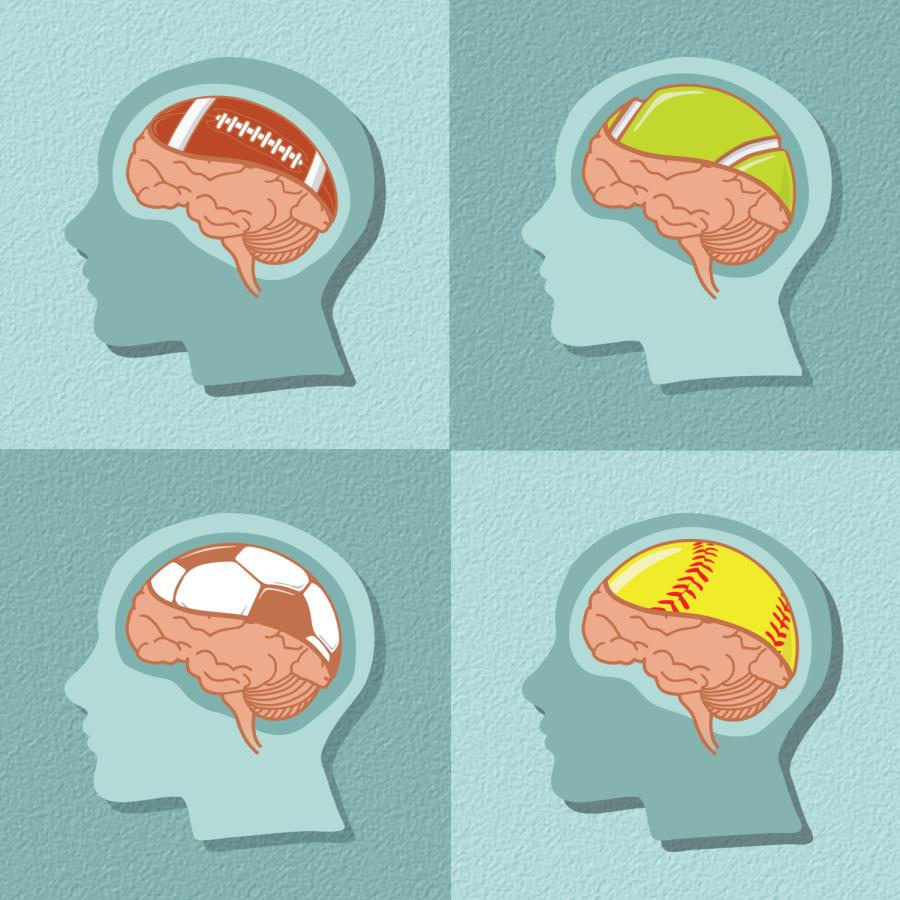The Importance of Prioritizing Student-Athletes’ Mental Health
Mental health services must be made more readily available for student-athletes in universities around the world. As the pressure on these young adults has increased, the ability to not only participate, but excel in all of their obligations has become more difficult. In college athletics, the phrase, “pressure to be perfect” has become increasingly popular over the past few years as students attempt to live up to this perfect image. A plan must be implemented to spark discussions on the mental health struggles of athletes and to decrease the daily stressors that they face.
The pressure to excel both on the field and in the classroom can be crippling for young student-athletes. When considering the average 15-20 hours a week during which these young adults practice, piled on top of schoolwork and societal obligations, the cause of stress is evident. The responsibilities of student-athletes pile up quickly, becoming overwhelming fast.
It is important for schools to keep in mind, however, that no matter how important college sports may seem, providing an education should always be the priority. Shouldn’t these student athletes be exactly that: student-athletes, with an emphasis on the student before the athlete?
Not only do student-athletes spend a significant amount of time practicing, but traveling and games add to an already large commitment. Furthermore, the time spent away because of travel means students are missing out on valuable learning time. As classes are missed, students fall further and further behind, leading them to have to choose between their academic or athletic career. They should not have to worry about choosing one over the other, but rather there should be resources to help athletes balance their responsibilities equally, eliminating any added stress.
Mental health problems among student-athletes should be treated identically to physical injuries. Most teams have physical trainers, but a team therapist should be readily available with mandatory sessions for all athletes. If a student is injured physically during practice, there are several requirements that must be met, including physical therapy sessions and medical visits. Why is there not a similar protocol for those who express issues with mental health? Often, student-athletes who discuss their mental health are perceived as being unwilling to put in the work, rather than being seen as genuinely struggling. And if a student needs to take a break from athletics to focus on their mental health or schoolwork, they should be allowed to do so without fear of repercussions.
Many of those battling mental health struggles don’t exhibit obvious or alarming signs. To combat this, mental health check-ins conducted every two weeks by certified therapists should be mandatory for all student-athletes. The pressure when these athletes are in season can increase tenfold, and having a certified therapist available to converse with the student-athletes can only be beneficial.
Additionally, coaches and trainers should normalize taking time to talk to their athletes about their mental well-being. Bringing this conversation to light will make student-athletes feel that their thoughts are accepted and heard, possibly decreasing the stress found in the athletic environment.
There is no easy solution for this issue. Taking care of mental health needs to be made a priority in universities across the world, and free counseling should be offered to student-athletes and students alike. Although Fordham University offers 10 free sessions to all students during their time in college, it can be difficult to schedule an appointment when it is needed. Moreover, not all universities offer free therapy sessions to their undergraduate students.
Of course, it will never be possible to get rid of all the inherent stress and pressure in athletics. Universities, however, can focus on changing the culture surrounding athletics and mental health, as well as providing adequate resources to all their students, since changing the stigma surrounding mental health will help ensure that student-athletes feel comfortable discussing their mental well-being.
Student-athletes need to be recognized less as athletes who merely take classes on the side, and more as students who are participating in athletics. If the pressure placed on student-athletes continues to increase, so should the mental health services being offered. Focus is placed on the physical well being of athletes, so shouldn’t emphasis also be placed on their mental well being?
Grace Galbreath, FCRH ’25, is a communications major from Huntingdon Valley, Penn.

Grace Galbreath is a junior from Willow Grove, Pa. majoring in communications and journalism. She began writing for the Ram spring of her freshman year...










































































































































































































